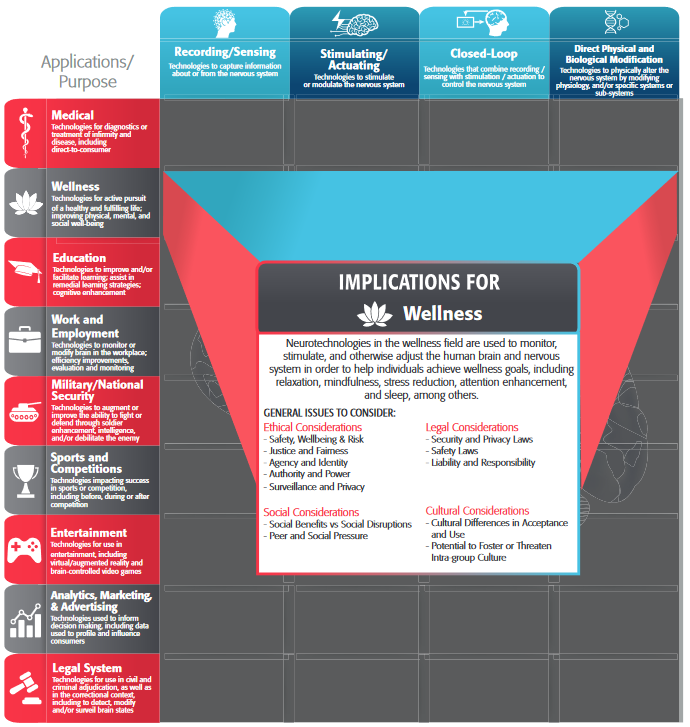The 2020 IEEE Brain Workshop on Advanced NeuroTechnologies is accepting one-page papers on the following topics and other related area: Neural signal processing and imaging Neural computation and modeling Cognitive engineering and decision making Neural modulation and stimulation Bioelectronic medicine Neural interfaces, implants, and prostheses Brain and body computer interfaces Biomaterials for neural tissue engineering Neural rehabilitation Translational neural …
IEEE Brain Virtual Summer School 2020
Weeks of August 17 and August 24, 2020 Course Overview Neural Engineering is one of the most exciting inter-disciplinary technologies to impact neuroscience and information science, computation and robotics. A greater understanding of the brain and how it learns, acts, and interprets the world has immensely impacted the development of neural interfaces and the design of bio-inspired robots. The basic …
2020 IEEE Brain Workshop on Advanced Neurotechnologies
IEEE Brain Initiative Workshop on Advanced NeuroTechnologies Virtual – 22-23 October 2020 Registration 1-pg Papers Sponsors/Exhibitors Program Booklet On-Demand Access On-demand access to the workshop and poster session is now closed. About There is an increasing interest and need in the development and use of advanced neuroscience and neuromodulation technologies to monitor and control brain activities to treat a …
Call for Participation: IEEE Brain Data Bank Challenge – Global
The 2020 Brain Data Bank Challenge (BDBC-2020) is targeted to expose, discuss and accelerate on-going brain research from around the world. This is a hybrid event, both virtual and in person. Competing teams can make presentations in the preliminary rounds on-line or in person with judging locations in Taiwan, Russia, and United States. Some teams from preliminary rounds will …
Book Review – Neural Engineering, 3rd Edition (Bin He, Editor)
BOOK REVIEW
May 2020
Bruce Wheeler, PhD
Dr. Bin He is to be congratulated on pulling together an even stronger set of contributors and topics to make the third edition of Neural Engineering (Bin He, editor; Springer) a significant enhancement over the second edition. Easiest to note are the inclusion of 22 chapters (an increase of 3), with nine new topics, and three previous topics presented by new authors with fresh perspectives. Perhaps over half the material is new. A quick additional look shows that the new topics are quite timely.
Transfer Learning for Brain-Computer Interfaces: Euclidean Alignment and Label Alignment
RESEARCH
May 2020
Dongrui Wu and He He
Ministry of Education Key Laboratory of Image Processing and Intelligent Control, School of Artificial Intelligence and Automation, Huazhong University of Science and Technology, Wuhan, China.
Email: drwu@hust.edu.cn, hehe91@hust.edu.cn.
A brain-computer interface (BCI) system [1], [2] acquires the brain signal, decodes it, and then translates it into control commands for external devices, so that a user can interact with his/her surroundings using thoughts directly.
Re-designing the Wheel: The High Relevance of EEG in Studying Brain Networks
RESEARCH
May 2020
Abbas Sohrabpour and Bin He
There seem to be two major principles that govern brain function; functional segregation and functional integration [1]. The brain is a highly specialized, and at the same time, a highly integrated organ. Spatially segregated regions are tuned to perform special functions optimally (functional segregation), and at a higher level, multiple regions need to pull resources together, and integrate functions, to perform complex tasks (functional integration).
Overview of the IEEE Standards Roadmap on Neurotechnologies for Brain-Machine Interfacing
OPINION
May 2020
Ricardo Chavarriaga, Sumit Soman, Zach McKinney, Jose L Contreras-Vidal, Stephen F Bush
Introduction
Brain-machine interfacing (BMI) systems are a product of multiple integrated technologies, including sensing modules for biosignal acquisition and processing, computational systems for signal decoding and system control, and actuation modules for providing sensory, mechanical, or electrical feedback to the user, and/or for effecting desired physical actions.
Q&A with Dr. Mark George, Medical University of South Carolina
Dr. Mark George is Professor of Psychiatry, Radiology and Neurology at the Medical University of South Carolina in Charleston and a clinical neurologist and psychiatrist. George began his career doing brain imaging, identifying brain functions in patients with depression and other emotion problems. His work led to the development of brain stimulation methods and exploring their potential use to modify brain circuits to create effective treatments.
Q&A with Professor Krishna V. Shenoy, Stanford University
Krishna V. Shenoy, PhD, is a Professor of Engineering with the Departments of Electrical Engineering and by courtesy, Bioengineering and Neurobiology at Stanford University. He is also a Howard Hughes Medical Institute Investigator. Prof. Shenoy holds a BS in Electrical and Computer Engineering from UC Irvine, a PhD in Electrical Engineering and Computer Science from MIT, and was a postdoctoral fellow in Neurobiology at Caltech. Prof. Shenoy directs the Stanford Neural Prosthetic Systems Lab (basic neuroscience and engineering) and co-directs the Stanford Neural Prosthetics Translational Laboratory (clinical trials), which aim to help restore lost motor function to people with paralysis.


